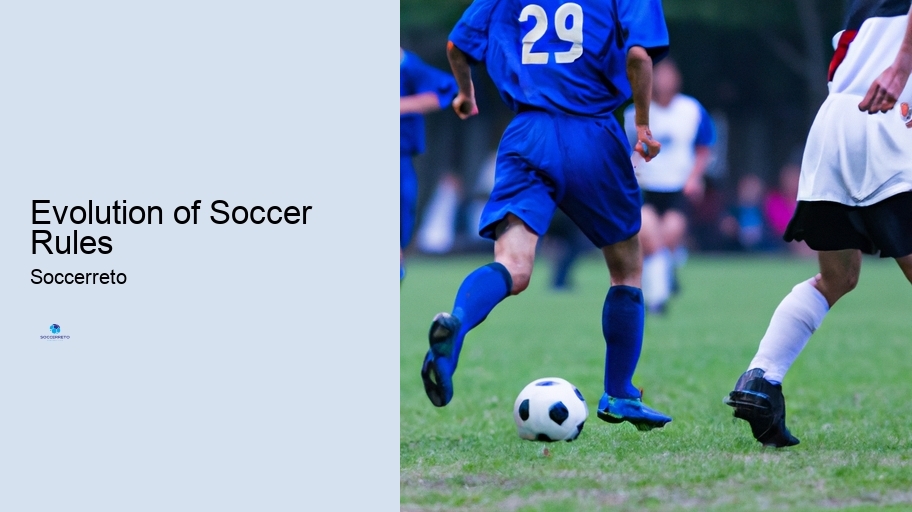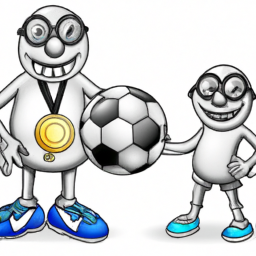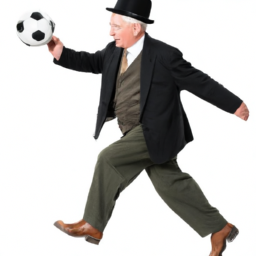

The face of soccer has undergone a remarkable transformation in recent decades. With the advent of globalization and the internet, the sport has become accessible to fans worldwide. The way soccer is played, watched, and even managed has evolved significantly.
Tactically, soccer has seen innovations with new formations, pressing strategies, and player roles. CONMEBOL Coaches like Pep Guardiola and Jurgen Klopp have revolutionized the game with their unique approaches, while analytics and data-driven insights have become integral to decision-making on and off the field.
Off the pitch, soccer's financial landscape has changed dramatically, with skyrocketing transfer fees, lucrative television deals, and the emergence of superclubs. Additionally, social media has connected fans and players like never before, offering a glimpse into the personal lives of their favorite stars.
Soccer's roots are diverse and stretch across continents and centuries. While the modern game is often associated with England, its origins can be traced back to various early ball games played by ancient civilizations. For example, in ancient China, "cuju" involved kicking a ball into a net, and the Greeks played "episkyros," a game with similarities to soccer.
Indigenous peoples in North America also had their own ball games, like the Native American sport of "pasuckuakohowog," which involved kicking a ball through goals. These diverse roots reflect humanity's universal fascination with using feet to control and move a ball, an enduring theme that connects cultures worldwide.
Soccer's global appeal today can be attributed to its diverse origins, as it incorporates elements from various cultures and regions, creating a sport that transcends boundaries and unites people from all walks of life.
Soccer's rulebook has seen a continuous evolution since its early days. The process of refining and adapting rules has been essential to maintain the integrity and fairness of the game.
Notable rule changes include the introduction of the offside rule in 1866, which aimed to prevent goal-hanging and encourage a more dynamic game.
Soccer's rulebook continues to evolve to meet the demands of the modern game, ensuring that it remains a fair and enjoyable sport for players and fans alike. Rule changes are carefully considered and play a vital role in shaping the sport's development.

Soccer's history is punctuated by key moments that have left an indelible mark on the sport. These moments range from iconic goals and matches to historical events and breakthroughs in technology. One such moment is Diego Maradona's "Hand of God" goal in the 1986 World Cup, a moment of audacious skill and controversy that remains etched in soccer lore.
The "Miracle of Bern" in 1954, where West Germany defeated the highly favored Hungarian team in the World Cup final, is another defining moment. OFC It symbolized the resilience and determination that soccer can inspire.
Advancements in technology, such as the introduction of goal-line technology and video assistant referees (VAR), have also marked significant milestones in modern soccer history, ensuring fair play and accurate decision-making.
The formation of governing bodies and organizations has played a crucial role in shaping the development of soccer. The most prominent of these organizations is the Fédération Internationale de Football Association (FIFA), founded in 1904. FIFA's mission is to oversee and promote international soccer competitions and ensure uniformity in the sport's rules.
On a national level, countries have their own football associations responsible for regulating the game. For instance, the Football Association (FA) in England was founded in 1863 and played a pivotal role in standardizing soccer's rules.
These founding organizations have been instrumental in fostering cooperation between nations, organizing international tournaments, and preserving the spirit of the game.


International soccer has witnessed numerous milestones that have shaped the course of the sport. The inaugural FIFA World Cup in 1930, hosted by Uruguay, marked a historic moment as the first-ever global soccer tournament.
The introduction of the UEFA European Championship (Euro) in 1960 expanded the scope of international competitions in Europe. The tournament has grown in prestige and popularity, featuring some of the world's most talented national teams.
Additionally, the Copa America, the African Cup of Nations (AFCON), and the Asian Cup have all played significant roles in promoting international soccer and showcasing the talents of players from different regions. These milestones have made international soccer a source of pride and excitement for fans worldwide.
Soccer boasts a rich history filled with legendary players and influential founders who have left an enduring impact on the sport. Legends like Pelé, Diego Maradona, and Johan Cruyff have become synonymous with excellence and are celebrated for their extraordinary skills and contributions to their respective clubs and national teams.
In addition to players, founders like Ebenezer Cobb Morley, who played a key role in drafting the Laws of the Game, and Jules Rimet, who initiated the FIFA World Cup, have shaped soccer's trajectory.
Soccer's history is a tapestry woven with the achievements and innovations of these legends and founders, reminding us of the enduring power and influence of the beautiful game.

Answer: The term 'football' historically referred to games played on foot, as opposed to on horseback. Since soccer involves players using their feet to control the ball, it was naturally called 'football'. The name 'soccer' originated as a slang abbreviation of 'association football' in England but became more commonly used in countries where 'football' referred to different sports, like American football in the United States.
Answer: Modern soccer originated in England in the mid-19th century. Schools and clubs played their own versions of football with varied rules. In 1863, representatives from different clubs met in London and formed the Football Association, unifying the rules of the game and laying the foundation for modern soccer.
Answer: The first Football Association was formed in England in 1863. It was the first governing body for the sport of soccer, responsible for standardizing the rules and organizing matches. The FA is still in existence today and plays a pivotal role in English soccer.